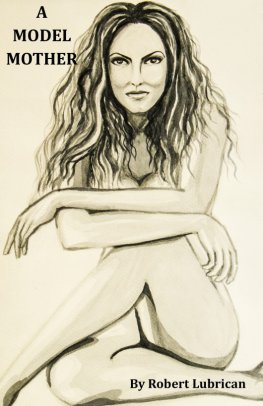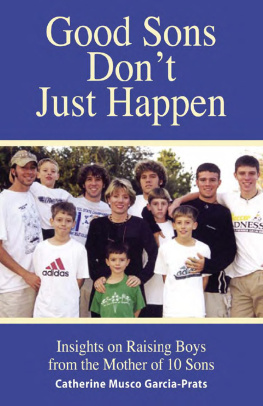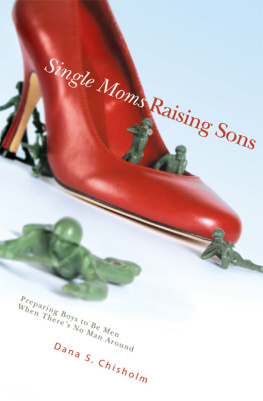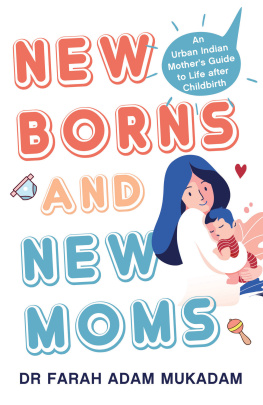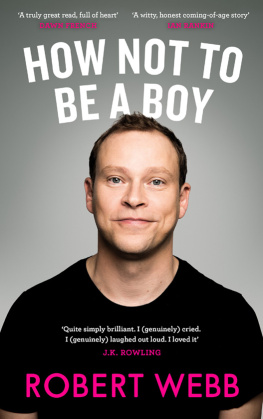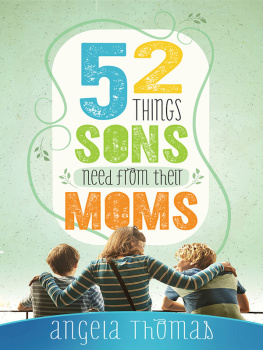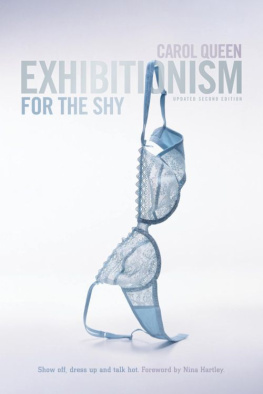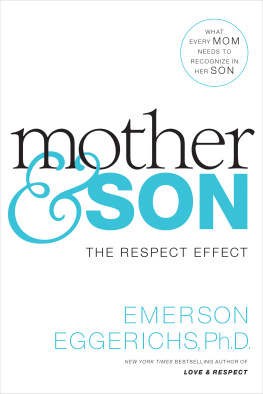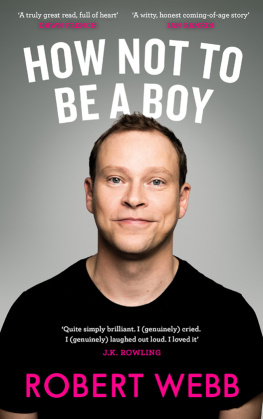Robert Lubrican - A Model Mother
Here you can read online Robert Lubrican - A Model Mother full text of the book (entire story) in english for free. Download pdf and epub, get meaning, cover and reviews about this ebook. year: 2019, genre: Romance novel. Description of the work, (preface) as well as reviews are available. Best literature library LitArk.com created for fans of good reading and offers a wide selection of genres:
Romance novel
Science fiction
Adventure
Detective
Science
History
Home and family
Prose
Art
Politics
Computer
Non-fiction
Religion
Business
Children
Humor
Choose a favorite category and find really read worthwhile books. Enjoy immersion in the world of imagination, feel the emotions of the characters or learn something new for yourself, make an fascinating discovery.
- Book:A Model Mother
- Author:
- Genre:
- Year:2019
- Rating:4 / 5
- Favourites:Add to favourites
- Your mark:
- 80
- 1
- 2
- 3
- 4
- 5
A Model Mother: summary, description and annotation
We offer to read an annotation, description, summary or preface (depends on what the author of the book "A Model Mother" wrote himself). If you haven't found the necessary information about the book — write in the comments, we will try to find it.
A Model Mother — read online for free the complete book (whole text) full work
Below is the text of the book, divided by pages. System saving the place of the last page read, allows you to conveniently read the book "A Model Mother" online for free, without having to search again every time where you left off. Put a bookmark, and you can go to the page where you finished reading at any time.
Font size:
Interval:
Bookmark:
Chapter One
I dont know if boys in general are dense as they grow up, but Iwas. Im aware thats a pretty sweeping comment, but let me explain andperhaps youll understand where Im coming from and judge me lessharshly.
What Im actually referring to is a boys reflection on his parents. Inmy case, it was just one parent, my mother. She was a single mother, andthats all I ever knew her as. I had no idea who my father was, onlythat shed never married him and deflected any questions or conversationconcerning him. They say that familiarity breeds contempt. I thinkthats a little harsh, personally, but familiarity does cause one toview the other person in a bubble. When youre a kid, your mom is just your mom. Other kids' moms might seem interesting, or exotic, or evenhot, but you see your own mother so much that she just fades into thebackground.
My mom was a real estate agent. I guess shed been a waitress when I waslittle, but she had her realtors license by the time I was five or six.We were poor, but I didnt know the difference. She always found a wayto put a roof over our heads and food on the table. It took until I wastwelve or thirteen before I did the math and figured out that shed hadme when she was fifteen. It sounds crazy now, but back then, thefifteen-year-olds I knew seemed like grownups to me, so I didnt think alot about it. Nor did I think about how hard it must have been for herto be pregnant and not even old enough to have a drivers license, yet.
Anyway, she did okay as a realtor. The income wasnt steady, which iswhy, sometimes, things got tight, financially speaking. Markets likethat fluctuate, so you have to plan for the long haul. I knew shed hadsecond jobs, now and then, as I grew up, but I hadnt paid any attentionto that, either. When she wasnt there, that gave me time to read comicbooks, and play on my Atari, that shed gotten at the Good Will store.Like I said, I was a little dense. Or maybe just self-absorbed.
What I did pay attention to was my mothers opinion on how a man (orboy) should treat a member of the opposite gender. She was death onthat. It was her firm opinion that If a man didnt respect women, andtheir wishes, then he was lower than whale shit. She made it quiteclear, even before I entered puberty, that I was to be a gentleman. Iwas to listen to what a woman said, and always, always, always respecther.
I was allowed to date when I turned sixteen. I did some of that, but Iwas pretty shy. I had to know a girl pretty well before Id ask her out.It might sound counter-intuitive, but by the time I knew a girl thatwell, we were friends, and had usually figured out dating each otherwouldnt be as fulfilling as just staying friends. I felt the same urgesother guys did, but the girls I felt them about were mostly either outof my league or already somebodys girlfriend. So I fell into thecategory of group dating, for the most part. A bunch of us who likedeach other went out and did things together. Id recommend it to others,except that my sexual development took a somewhat odd path.
But that comes later. I managed to get by with usually quick, somewhatviolent masturbatory sessions. The objects of my passion at such timeswere photographs of women who didnt mind if I saw them naked. That wasobvious because they had posed for such pictures and let somebody putthem in a magazine. I could have whatever fantasy I wanted about themwithout feeling like I was objectifying them. Men objectifying women wasone of my moms hot-button issues.
Mom managed to save up enough money for me to at least start college. Iwanted to be a fire fighter, and it just so happened that the vo-techschool in our town offered an associates fire science degree, so I wasable to save some money by living at home. The rest of the guys in myclass were away from home for the first time, horny out of their minds,and finally able to get drunk without a parent finding out, so they werea pretty wild bunch. Im sure that if Id lived in the dorm with them,the peer pressure would have caused me to do some of the same stupidthings they did, but I was able to get away at night. It helped my studyhabits, too, which I had failed to build up in high school. It was closeenough that I could ride my bike (helpful in the physical fitness arena,which was a big deal in the program) or walk if I had to.
On the other hand, living at home meant I couldnt bring a girl over anddespoil her, like my friends bragged they did. Alas, I stayed a virgin.Of course I never told them that.
And that brings me to what started the train of my normal, ordinary,dense life to well derail. Or threaten to derail.
In my fourth (last) semester I had to take a humanities class as anelective, to satisfy a fine arts requirement. I chose Art 101 because Ifigured it would be easy credit. I mean art is subjective, right? So youcant screw it up, right? If my apples and bananas in a still life endup looking like coals and sticks, then I can just spin it and say itswhat I intended, right?
It turned out I liked art. An example of my denseness is that I spentyears with my nose stuck in a comic book and didnt translate that into,"I like art." Id never spent any time drawing, but I should have,because I had a talent for it. My teacher even thought so. After classone time she took me aside and asked if I might be interested in workingwith one of the college art partners. I didnt know what a college artpartner was. It turns out that a local art gallery offered trainingabove and beyond what the vo-tech could offer. They called it "investingin arts future." I would later learn that the theory is a little likeAmerican Idol, or The Voice, where tens of thousands of people arescreened who might never come to the attention of a music producer, butwho have raw talent. Not many will make the grade, but the few who domake a lot of money for the people putting on the show. What these artpartners did was try to find talent that could make them money.
Anyway, it was part of what was called Art Lab. The owner of the localgallery came in as a guest instructor and ran it in a studio at thecollege. It was only on Friday nights, which was good, because thatwouldnt interfere with my fire science classes. It was three hourslong, so students could spend serious uninterrupted time on majorprojects. Obviously, since it was on Friday night, only the seriouspeople attended. If you were a pussy hound, or analcoholic-in-the-making, you avoided things like art lab. I had takenout a few girls since starting college, but only those I already knewfrom high school. I didnt really have a lot of self confidence, or atleast enough to approach the vivacious, independent girls I saw oncampus. Actually, that was one reason I took art as an elective. Ifigured maybe girls who were into art might be into quiet, polite guys like me. My point is that I didnt think losing Friday nights to art labwould cut into my social life. It was also a good excuse to turn down aparty where, typically, alcohol would flow like a stream, leading to metrying to sneak into the house without my mother knowing Id beendrinking.
"So what do they do there?" I asked.
"They do different things each semester," she said. "I believe theyredoing a figure study this semester."
"I guess I could try," I said. "Isnt drawing figures hard?"
"It is for some people, but as you already know, its formulaic. Wevealready gone over the basics of that in class. Mrs. Gaskill will beproviding advanced instruction. I think you could do it."
"Okay, then," I said. "Where do I go and what should I bring?"
* * *I arrived at the studio the next Friday night. It was in the basement ofFerrel Hall, a big two-story building, and you had to go down a long,empty hallway to get there. It was a little spooky because it was soquiet. And some the fluorescent lights on the ceiling flickered too. Ionly saw one other person in the hallway. I would find out that theveterans got there early, because Mrs. Gaskill provided donuts andcoffee. She said you should never paint hungry. I found out you shouldnever try to paint with sticky fingers from eating donuts, either, butthats another story.
Font size:
Interval:
Bookmark:
Similar books «A Model Mother»
Look at similar books to A Model Mother. We have selected literature similar in name and meaning in the hope of providing readers with more options to find new, interesting, not yet read works.
Discussion, reviews of the book A Model Mother and just readers' own opinions. Leave your comments, write what you think about the work, its meaning or the main characters. Specify what exactly you liked and what you didn't like, and why you think so.

